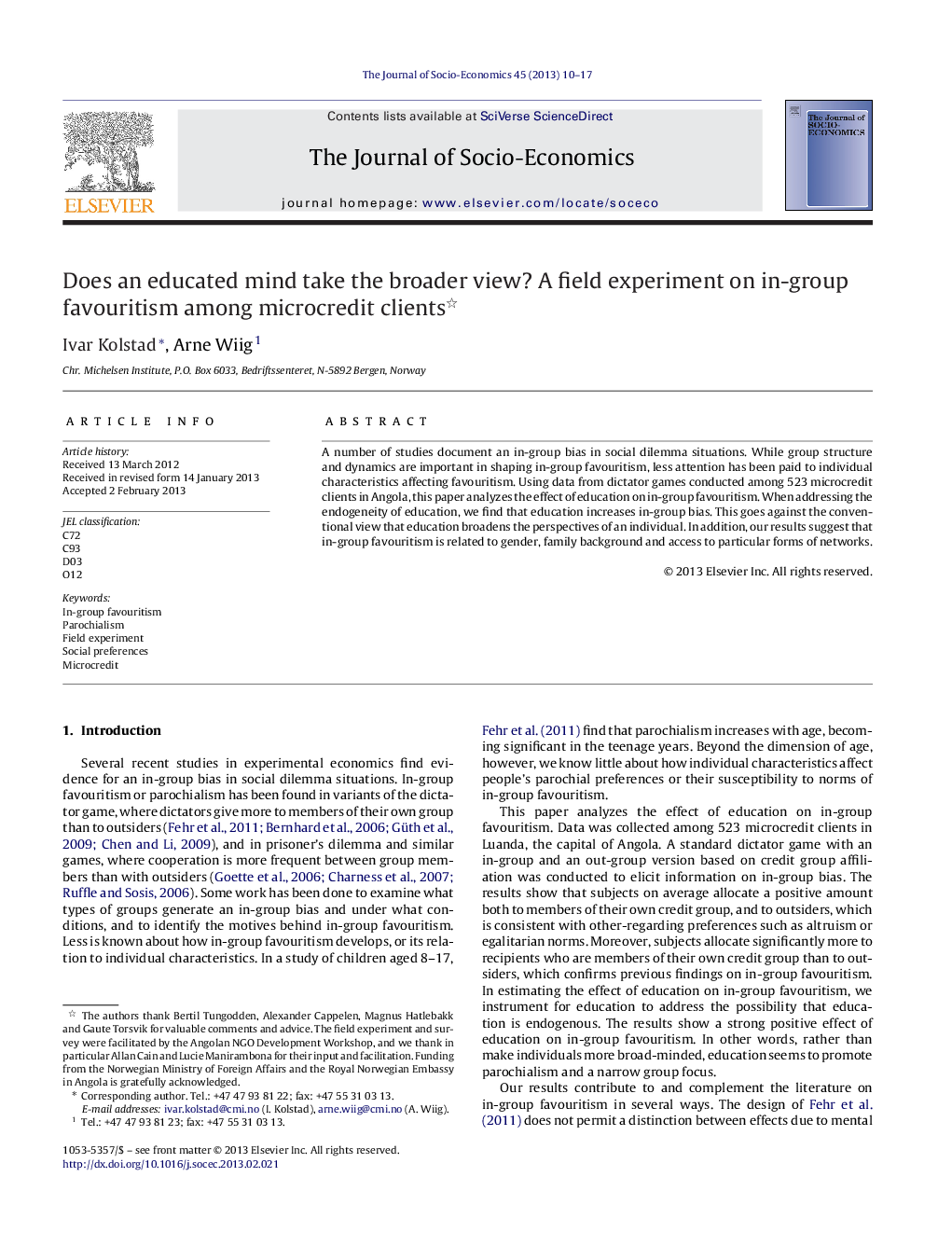| Article ID | Journal | Published Year | Pages | File Type |
|---|---|---|---|---|
| 970610 | The Journal of Socio-Economics | 2013 | 8 Pages |
A number of studies document an in-group bias in social dilemma situations. While group structure and dynamics are important in shaping in-group favouritism, less attention has been paid to individual characteristics affecting favouritism. Using data from dictator games conducted among 523 microcredit clients in Angola, this paper analyzes the effect of education on in-group favouritism. When addressing the endogeneity of education, we find that education increases in-group bias. This goes against the conventional view that education broadens the perspectives of an individual. In addition, our results suggest that in-group favouritism is related to gender, family background and access to particular forms of networks.
► This paper analyze the effect of education on in-group favouritism. ► Data from dictator games conducted among microcredit clients in Angola is used. ► The results show that education increases in-group bias. ► This goes against the conventional view that education broadens our perspectives.
